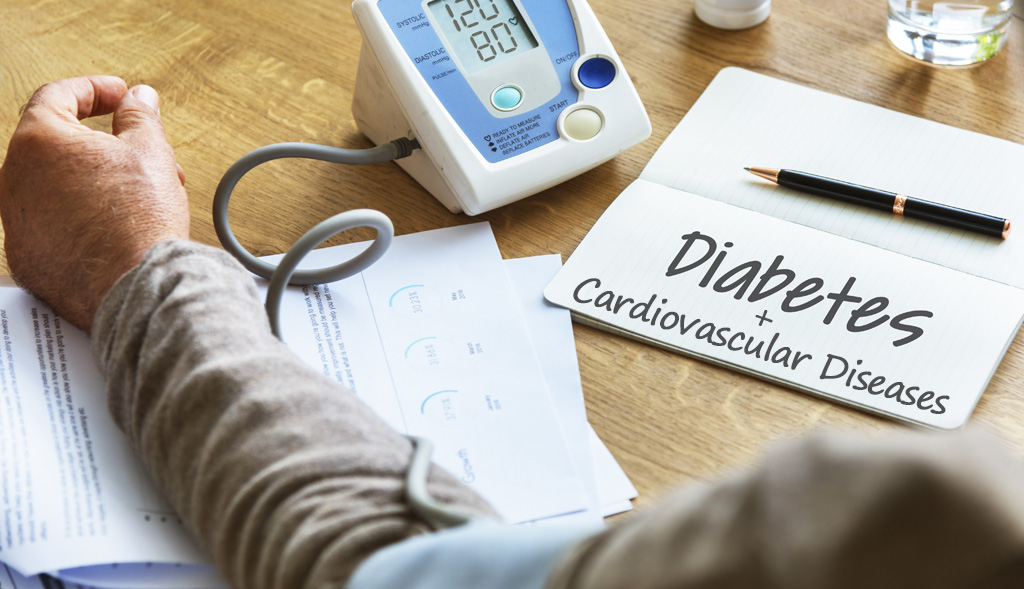
Two of the most impactful health conditions worldwide, Diabetes and CVD each presents its unique challenges. Even their connection is quite impactful, with diabetes significantly increasing the risk of cardiovascular diseases. Understanding this relationship is crucial for effective management prevention strategies. We, at Eastern Diagnostics, wish to shed light on how these conditions interplay and how to mitigate the risks.
Understanding Diabetes
A chronic condition characterized by high levels of glucose in the blood, Diabetes primarily occurs in two forms:
Type 1 Diabetes: An autoimmune condition where the body’s immune system attacks insulin producing cells in the pancreas.
Type 2 Diabetes: A metabolic disorder. Body becomes resistant to insulin or doesn’t produce insulin at all.
Both lead to high blood sugar levels, which can damage various organs and systems over time.
The Cardiovascular System
Our cardiovascular system comprises the heart and blood vessels, which circulates blood throughout our body. This system supplies oxygen and nutrients to tissues and removes waste products. Cardiovascular diseases consists of conditions that include coronary artery disease, heart failure, arrhythmias and stroke.
Link between Diabetes and CVD
The connection between diabetes and CVD is multifaceted, involving various physiological and biochemical mechanisms:
Atherosclerosis: High blood sugar can damage blood vessel walls, leading to fatty deposits or plaques. This process, known as atherosclerosis, narrows the arteries and lead to coronary artery disease, heart attacks or strokes.
Hypertension: Diabetics are prone to high blood pressure which affects the cardiovascular system. Hypertension can damage and accelerate the process of atherosclerosis.
Dyslipidemia: Diabetes often leads to abnormal levels of lipids (fats and oils) in the blood, such as high levels of LDL (bad cholesterol) and low levels of HDL (good cholesterol). The imbalance can cause plaque in the arteries.
Inflammation: Chronic inflammation is a common feature in diabetes. High glucose levels can cause inflammation of blood vessels, leading to CVD.
Obesity: Type 2 diabetes is strongly associated with obesity, which is a significant risk factor for CVD. Excessive body fat, particularly around the abdomen, increases the risk of heart disease.
Insulin Resistance: In type 2 diabetes, insulin resistance not only affects glucose metabolism, but also impairs the normal function of blood vessels, contributing to cardiovascular complications.
Prevent CVD in Diabetics
As there is a strong link between CVD and diabetes, it is vital to adopt a comprehensive approach to manage both conditions simultaneously. We, at Eastern Diagnostics, would like to suggest some key strategies:
Control Blood Sugar: Maintaining optimum blood glucose level is crucial. This can be achieved through a combination of medication, diet and regular physical activity.
Healthy Diet: Plan a balanced diet rich in fruits, vegetables, whole grains and lean proteins. Limit intake of processed food, sugary beverages and trans fats.
Regular Exercise: Physical activity helps regulate blood sugar levels, reduce weight and improve cardiovascular health. Aim at 150 minutes of moderate exercise a week. Walking is a good exercise.
No Smoking: Smoking is a risk factor for both diabetes and CVD. Smokers should try to quit smoking.
BP and Cholesterol Management: Regular monitoring of blood pressure (BP) and cholesterol levels are vital. Follow doctor’s advice.
Weight Management: Maintaining a healthy weight can significantly reduce the risk of CVD and lessen the burden on the heart.
Regular Check-ups: Routine check-ups can help detect early signs of CVD. Regular screening for BP, cholesterol and kidney functions, is advised.
Eastern Diagnostics always with You
The connection between diabetes and CVD is complex. Understanding the link is crucial to prevent and manage the conditions. It can be done by adopting a holistic approach that should include medication, lifestyle modifications, regular monitoring, diet and exercise. Eastern Diagnostics is committed to provide comprehensive care and support to help you enjoy a disease-free life.
